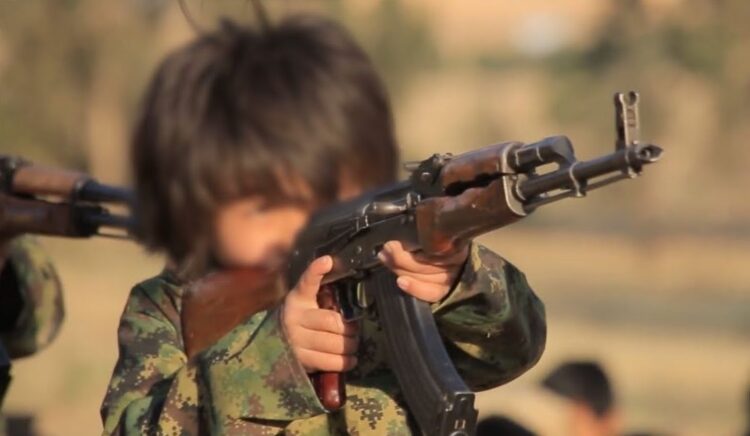United Nations: UN Secretary-General Antonio Guterres has removed India from the list of countries that need attention over the impact of armed conflicts on children following steps taken by the nation to mitigate the situation.
“In view of the measures taken by the Government to better protect children, India has been removed from the report in 2023” on Children and Armed Conflicts (CAAC), he wrote in the report released on Tuesday.
But separately his CAAC report noted that there were five child casualties fromcross-border shelling from Pakistan last year.
Guterres’s report last year had mentioned “grave violations” in India by both terrorist groups and government forces and the recruitment of children by Kashmir-based terror organisations. And earlier reports had also mentioned the recruitment of children by Maoists.
In his latest report that delists India, Guterres said, “I welcomed the engagement of the government of India with my Special Representative” Virginia Gamba to protect children.
He said that the special representative’s office had sent a technical mission to identify areas of cooperation for child protection. He noted that the Indian government had held with UN participation a workshop last year in Kashmir on strengthening child protection.
His report gave a grim picture of the global situation of children caught in armed conflicts with grave violations increasing last year to 27,180 compared to 2021 when 23,982 instances were recorded.
Last year’s incidents involved 18,890 children – 13,469 boys, 4,638 girls and 783 sex unknown – in 24 situations and one regional monitoring arrangement, the report said.
During the year, 2,985 children were killed and 5,666 maimed, it said.
Explaining the steps involved in getting India off the list, Gamba said, “India came forth two years ago to our offices and to our people on the ground, resident coordinator in Delhi as well as the UNICEF representative in the country, and indicated that they were ready to start engagement to see if they can put in place measures that could be sustained through time that would allow for them to be removed.”
While the agreed-upon measures are confidential, she said that Guterres’s report gives an idea of them when it lists steps to be completed. Guterres’s report lists “the training of armed and security forces on child protection, the prohibition of the use of lethal and non-lethal force on children, including by ending the use of pellet guns, ensuring that children are detained as a last resort and for the shortest appropriate period of time, and to prevent all forms of ill-treatment in detention, and the full implementation of the Juvenile Justice (Care and Protection of Children) Act and the Protection of Children from Sexual Offences Act.”
“We have been working with them very closely on this pattern”, she added.
Asked about the armed groups that had been listed in the previous reports, including the Lashkar-e-Tayyba and Maoists, she said that “it’s always very difficult when you’re in a situation of concern with no listed parties”.
“Therefore, there is no need or obligation to have a joint action plan”, she added.
Terrorist groups operating in India are not organised or structured – or extensive – like those in countries like Colombia, and, therefore, it is not possible to engage with them.
Meanwhile, the latest CAAC report said there were 23 cases of grave violations against children in Pakistan. Three children were reportedly killed and 17 maimed “by unidentified armed elements”, it said.
“Three attacks on schools were also reported, including an attack involving the use of improvised explosive devices against a girls’ middle school”, it said.
(IANS)



















